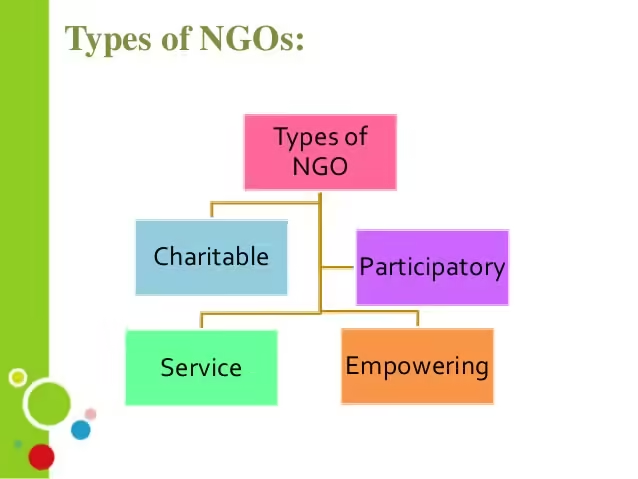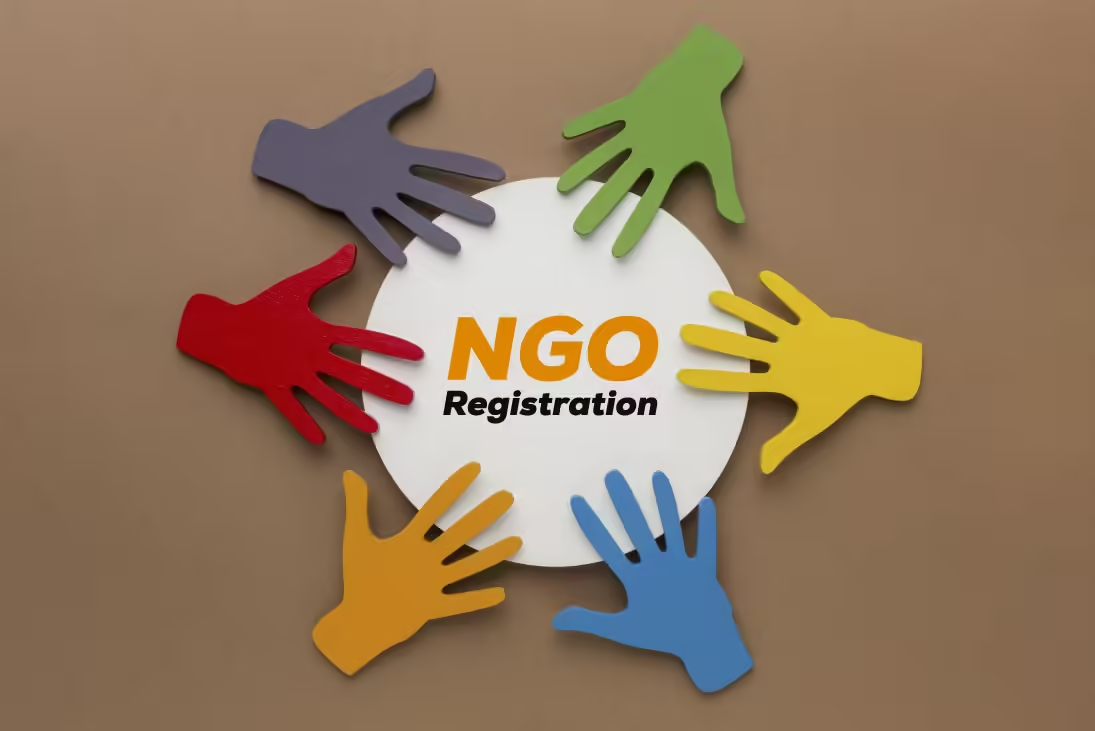Non-Governmental Organizations (NGOs) are crucial in India’s development landscape. Often rooted in community service and advocacy, these organizations tackle various social, economic, and environmental issues. From grassroots movements to large-scale initiatives, NGOs in India are instrumental in driving positive change.
Understanding How NGOs Work in India: Structure, Funding, Challenges, and Impact
Definition and Purpose
Non-Governmental Organizations (NGOs) in India are legally constituted entities created by private individuals or groups, independent of government involvement. They operate to address social, environmental, cultural, and political issues, aiming to foster positive change within communities. NGOs work in various sectors such as education, healthcare, women’s empowerment, rural development, and environmental conservation. Their primary purpose is to fill the gaps left by governmental efforts, advocate for vulnerable populations, and drive sustainable development through grassroots initiatives and broader advocacy efforts.
Types of NGOs in India

- Charitable Trusts: These NGOs are usually small, local initiatives focused on community welfare and are governed by the Indian Trusts Act, 1882. They often provide services like education, healthcare, and relief during emergencies.
- Societies: Registered under the Societies Registration Act, 1860, societies tend to engage in a broader range of activities, often operating across state boundaries. They are typically involved in cultural, educational, and social welfare projects.
- Non-Profit Companies: Also known as Section 8 Companies under the Companies Act, 2013, these organizations function similarly to private companies but do not distribute profits to shareholders. They focus on promoting commerce, art, science, sports, education, research, social welfare, religion, charity, and environmental protection.
Legal Framework and Registration

NGOs in India must adhere to specific legal frameworks to operate lawfully. They can register under one of the following acts:
- The Societies Registration Act, 1860: Suitable for organizations involved in cultural, educational, and charitable activities.
- The Indian Trusts Act, 1882: Commonly used for establishing charitable trusts that focus on community welfare services.
- The Companies Act, 2013 (Section 8): Ideal for NGOs operating as non-profit companies, focusing on promoting commerce, art, science, education, and other social objectives.
Registration Process
- Name Approval: Select a unique name and obtain approval from the relevant authority (Registrar of Societies or Registrar of Companies).
- Document Preparation: Prepare essential documents, such as the Memorandum of Association (MOA) and Rules & Regulations (for societies) or the Trust Deed (for trusts).
- Submission: Submit the required documents and fees to the appropriate authority.
- Approval: Upon verification, receive the registration certificate, which grants the NGO legal status to operate.
Funding and Financial Management
NGOs in India rely on diverse funding sources to sustain their operations and achieve their missions. Key funding sources include:
- Donations: Contributions from individuals, corporations, and philanthropists.
- Grants: Financial assistance from government agencies, international organizations, and private foundations.
- Membership Fees: Regular contributions from members of the organization.
- Fundraising Events: Organized activities and events aimed at raising funds for specific causes or projects.
Financial Management
Effective financial management is essential for maintaining transparency and credibility. NGOs must:
- Maintain Accurate Records: Keep detailed accounts of all financial transactions.
- Conduct Regular Audits: Perform periodic audits to ensure compliance with financial regulations.
- Comply with FCRA: Adhere to the Foreign Contribution (Regulation) Act, 2010, for receiving foreign donations.
- Tax Compliance: Follow tax regulations under the Income Tax Act to maintain tax-exempt status and avoid legal issues.
Organizational Structure
NGOs in India typically have a well-defined organizational structure to ensure effective governance and operations. The key components include:
- Governing Body: This may be a Board of Trustees or a Managing Committee responsible for strategic decisions and overall governance. Key roles within the governing body often include:
- President/Chairperson: Provides leadership and strategic direction.
- Secretary: Manages day-to-day operations and administration.
- Treasurer: Oversees financial management and ensures transparency in financial transactions.
- Staff: NGOs employ a mix of paid staff and volunteers to carry out their programs and activities. Staff members may include project managers, field workers, administrative personnel, and subject matter experts.
- Volunteers: Volunteers play a crucial role in supporting various initiatives and programs. They often bring diverse skills and contribute to the organization’s mission without financial compensation.
- Advisory Board: Some NGOs have an advisory board comprising experts in relevant fields. This board provides guidance and advice on strategic and operational matters.
Roles and Responsibilities
- Project Managers: Plan and execute projects, ensuring alignment with the NGO’s mission and goals.
- Field Workers: Implement programs on the ground, working directly with the communities served.
- Administrative Personnel: Handle office management, communication, and logistical support.
- Subject Matter Experts: Provide specialized knowledge and expertise to enhance the effectiveness of programs.
The organizational structure of an NGO is designed to ensure that it operates efficiently, remains accountable to its stakeholders, and effectively achieves its mission and objectives.
Activities and Impact
NGOs in India engage in a wide range of activities aimed at addressing social, economic, and environmental issues. Their activities include:
- Program Implementation: NGOs design and execute various programs aligned with their mission, such as educational initiatives, healthcare camps, women’s empowerment workshops, rural development projects, and environmental conservation efforts.
- Advocacy and Awareness: NGOs work to influence public policy and raise awareness about critical issues. They conduct advocacy campaigns, organize public events, and use media platforms to amplify their messages and promote social change.
- Capacity Building: NGOs provide training and support to individuals and communities, enhancing their skills and abilities to improve their socio-economic conditions.
- Research and Development: Many NGOs conduct research to understand the issues they address better and develop innovative solutions to tackle these problems effectively.
Impact
The impact of NGOs in India is significant and multifaceted:
- Social Impact: NGOs contribute to social change by addressing issues such as poverty, illiteracy, gender inequality, and health disparities. They empower marginalized communities and improve their quality of life.
- Economic Impact: Through vocational training, microfinance programs, and entrepreneurship development, NGOs help create economic opportunities and improve livelihoods.
- Environmental Impact: NGOs play a crucial role in environmental conservation by promoting sustainable practices, protecting natural resources, and raising awareness about environmental issues.
- Policy Impact: NGOs influence policy changes by advocating for the rights of disadvantaged groups, ensuring their voices are heard in the policymaking process.
By engaging in these activities, NGOs create lasting positive changes in society, contributing to the overall development and progress of the nation.
Challenges Faced by NGOs in India
- Funding Constraints: Securing consistent and adequate funding is a major challenge for NGOs. They often rely on short-term grants and donations, making long-term planning and sustainability difficult. Competition for limited funding sources further exacerbates this issue.
- Regulatory Compliance: Navigating the complex legal and regulatory landscape can be daunting. NGOs must comply with various laws such as the Foreign Contribution (Regulation) Act (FCRA), Goods and Services Tax (GST), and labor laws. Ensuring adherence to these regulations requires dedicated resources and expertise.
- Capacity Building: Limited resources for capacity building hinder the growth and effectiveness of NGOs. Investing in staff training, technology, and infrastructure is essential for scaling operations and enhancing impact, but often overlooked due to financial constraints.
- Public Trust and Accountability: Maintaining transparency and accountability is crucial for gaining and retaining public trust. Allegations of misuse of funds or corruption can damage an NGO’s reputation and hamper its operations. NGOs must be vigilant in their financial management and operational practices to avoid such issues.
- Political and Social Pressures: NGOs often operate in politically sensitive environments and may face opposition from various groups. Navigating these pressures while staying true to their mission can be challenging and may require delicate balancing.
- Operational Challenges: Managing diverse programs across different regions, especially in remote and underserved areas, can be logistically and administratively challenging. Ensuring effective coordination, monitoring, and evaluation of projects requires robust systems and processes.
Despite these challenges, NGOs in India continue to play a vital role in addressing societal issues and driving positive change. Overcoming these obstacles requires strategic planning, resource mobilization, and a commitment to transparency and accountability.
Success Stories
Despite numerous challenges, many NGOs in India have achieved remarkable success, demonstrating significant impact and innovation in their fields. Here are a few notable examples:
- Pratham: Founded in 1994, Pratham focuses on improving the quality of education in India. Through its innovative programs like the Annual Status of Education Report (ASER) and “Read India” campaign, Pratham has reached millions of children across the country, significantly improving literacy rates and learning outcomes.
- Goonj: Established in 1999, Goonj addresses urban waste and rural poverty by channeling unused urban materials to rural communities. Their “Cloth for Work” initiative empowers rural communities to work on local infrastructure projects in exchange for clothing and other essentials, fostering dignity and self-reliance.
- SEWA (Self-Employed Women’s Association): Founded in 1972, SEWA is a trade union for self-employed women workers. It provides economic opportunities, social security, and advocacy for women’s rights. SEWA’s integrated approach has transformed the lives of millions of women, enabling them to achieve financial independence and social empowerment.
- Aarohi: Aarohi works in the Kumaon region of Uttarakhand, focusing on integrated rural development. Through initiatives in healthcare, education, livelihoods, and environmental conservation, Aarohi has improved the quality of life for thousands of villagers, fostering sustainable development in the region.
- Magic Bus: Since its inception in 1999, Magic Bus has used a sport-based curriculum to empower children and youth from disadvantaged communities. By promoting education, health, gender equality, and life skills, Magic Bus has impacted the lives of over a million children, helping them break the cycle of poverty.

